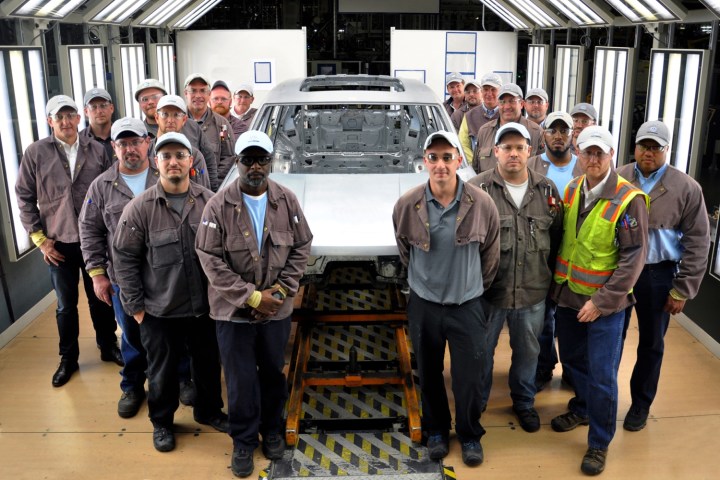
When Volkswagen opened the Chattanooga plant in 2011, it had a plan to dominate the U.S. market and make itself the world’s biggest carmaker. That didn’t work out, and not just because of the diesel scandal. VW just completed the first test body for its new SUV, which starts production later this year. It represents the company’s best chance for succeeding the second time around.
That’s because the new utility vehicle, which will have three rows of seats and compete with family haulers like the Ford Explorer and Honda Pilot, is exactly the kind of car Americans want to buy. SUV sales are booming, but right now Volkswagen doesn’t really have anything to offer in that category. The Touareg and Tiguan are both old, fairly expensive, and generally not very competitive in their corners of the market.
Read more: Volkswagen GTI Clubsport S breaks Nürburgring record
The Chattanooga-built SUV should be much more in line with American tastes. It will be a car-based crossover with enough seats to serve as a minivan substitute. The styling will likely be influenced by recent Volkswagen SUV concepts, with the CrossBlue from the 2013 Detroit Auto Show likely serving as the biggest influence.
Whatever it ends up looking like, the new SUV will be the first Volkswagen model tailored specifically to American tastes since the current-generation Passat that launched with the 2012 model. The U.S. Passat differs somewhat from the European model, and was aimed at lowest-common-denominator sedans like the Toyota Camry. While it did receive a significant update for 2016, the Passat is fairly old.
VW has a blitz of new utility vehicles planned for the next few years. A second-generation Tiguan should launch in the U.S. soon, possibly with third-row seat and plug-in hybrid options. The company is also planning a full-size model based on the T-Prime Concept GTE from the recent Beijing Auto Show.
Editors' Recommendations
- So THAT’S why Boston Dynamics retired its Atlas robot
- Volkswagen adds ChatGPT voice recognition to some models
- Bold style alone can’t muscle Chevy’s new Blazer EV to the head of its class
- Volkswagen ID.4 vs Tesla Model Y
- Volkswagen ID.GTI concept is another icon reimagined as an EV


